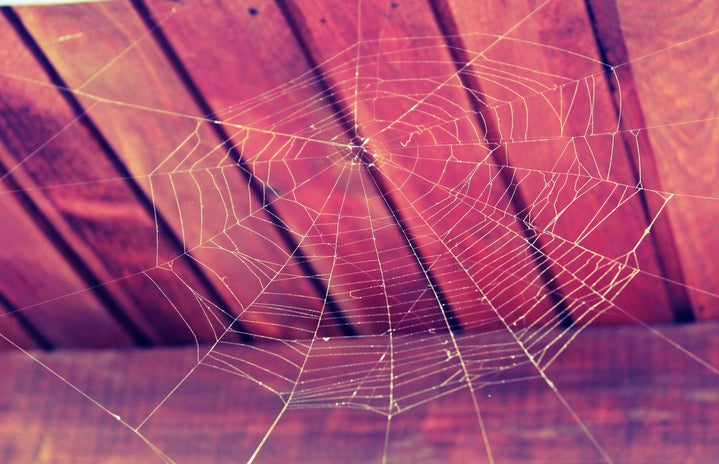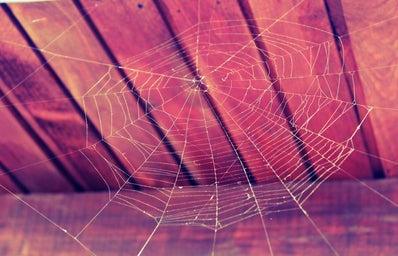Remnants of summer and warm weather is quickly fading into fall festivities, and the commencement of the fall holiday season approaches us. Everywhere you go, people are talking of what they’re going to dress up as for Halloween– whether it be the classic cat or a creative replication of your character. And let’s be honest: no matter how old you get, dressing up as something outrageous and funny is something that is always enjoyable.
But let’s be real for a second. There’s an underlying problem that we often see within some people’s choices of costumes. Instead of opting for an animal or perhaps a profession, there are those who select costumes like gypsies, “Indians,” and more.
Cultural Appropriation
These kinds of costumes are problematic not only because they can be offensive, but because of a concept called cultural appropriation.
Cultural appropriation is described by Wikipedia as “the adoption of elements of a minority culture by members of the dominant culture.” It is not to be confused with a cultural exchange, where both sides of the exchange are equal. No, it occurs when those of an oppressed population have parts of their culture used by those colonizing or doing the oppressing, without any credit or appreciation.
We see it all of the time, like Post Malone criticizing the hip-hop industry while using the black-originating art style to become famous, or Katy Perry dressing up with cornrows and chains in a mocking manner towards black people. There is no sense of appreciation or even acknowledgement of the derivation– it is, simply put, another form of oppression on the minority.
The idea of cultural appropriation is an idea rejected often by the majority (or white people), mainly because the line of appropriation vs. appreciation is not black-and-white. White people will argue things like minorities adopting things from them, will argue that white people and POC are equal, and their cultures should be as well. Many white people don’t even realize how appropriation, and these very arguments, are contributing to modern-day oppression.
This conflict is extremely prominent around Halloween time. You may be tempted to dress up in a kimono, with a headdress, or some other kind of stereotype of a race– don’t. There is no way for a costume of this sort to be considered in an appreciative sense: you would be categorizing some else’s way of life and culture as a humorous costume, among others like being a unicorn, a mermaid, a witch. Exploiting someone else’s lifestyle as a costume is inexcusably offensive.
Painting Your Skin
Going one step further, do not incorporate blackface in any sense. Don’t paint your skin brown or use darker makeup to convey an African-American– we don’t need repeats of Julianne Hough’s “Crazy Eyes” costume. Though it shouldn’t need a justification at this point, not only is this idea extremely offensive, but has a definitive past of rampant racism. Blackface was used in minstrel shows in the mid-to-late nineteenth century. White actors greased their face to portray black caricatures, mocking them about slavery and other discriminative properties. Do I have to say more? Don’t do this. There is no excusing this anymore– it is a blatant act of racism.
Other Offenses
Other offensive costumes may include homeless people, which is a devastating situation to struggle with (we don’t want to see your ‘Need Money 4 Alcohol’ signs), Caitlyn Jenner and other transgender figures, which degrades trans people’s problems into a joking costume, a “terrorist,” which is mainly just someone dressing based off of Middle Eastern culture (and very few Islam people are actually terrorists– it is just another act of racism). We don’t want to see you in straight-jackets or “psych ward” outfits, mocking mentally ill people. We don’t want to see you dressed as a “Holocaust victim,” (yes, that’s actually a thing.) We don’t want to see anything offensive that would ruin the fun of the holiday for others.
A common rebuttal to these simple rules is, “You’re taking the fun out of everything!” But the reality is that a lot of people, who’ve utilized this holiday to express their discrimination in an ‘innocent’ way, have been ruining this holiday for everyone else whom their costumes offend.
Is Your Costume Offensive?
As aforementioned, the line of appropriation can get a little bit complicated. Not sure if you’re costume is offensive or not? Susan Scafidi, author of Who Owns Culture: Appropriation and Authenticity in American Law, talked to USA TODAY about how to decide what is offensive and inoffensive.
She instructed to follow the three S’s:
-
Source: Is the source of the culture one that has been historically oppressed?
-
Significance: Is the piece of culture you’re impersonating extremely significant within the culture? (i.e. Headdresses for Native Americans are something sacred to the culture, thus increasing the offensiveness.)
-
Similarity: Are you being inspired by someone else’s culture or copying it?
If this still doesn’t make things 100% clear for you, and you’re still not sure, don’t do it. There are so many other fun things to dress up as, and, in all honesty, it’s almost 2019. If the only costumes you can come up with are offensive, you might want to reevaluate your own views towards others (and worry less about Halloween.)


